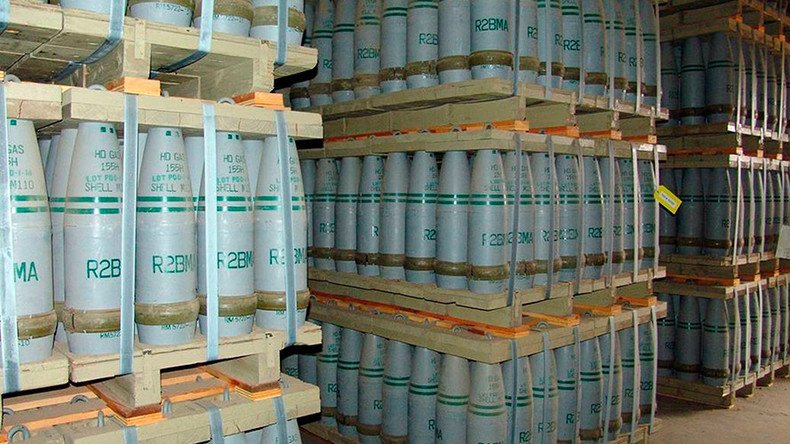
Islamic State (IS, previously ISIS/ISIL) militants have reportedly used poisonous gas in an attack on a Syrian military airbase located in Deir Ez-zor, the largest city in the eastern part of the country, RIA Novosti cited a military source as saying.
“The Daesh [derogatory Arabic name for IS] militants attacked the military airfield in Deir Ez-zor with shells containing a poisonous chemical substance. The defenders of the airbase have reported that a number of soldiers were choking,” the source said.
This latest report adds weight to previous evidence implicating IS in using various forms of poisonous gas to attack targets.
Kurdish deputies in the Turkish parliament have previously accused Turkey of supplying Islamic State and other jihadist groups inside Syria with chemical weapons to fight the Syrian government.
In an interview with RT, a spokesman for the Kurdish YPG militia said that Turkey had provided a clear transit route for the chemical weapons that were deployed against them near the city of Aleppo in early March.
Anti-government militants “took advantage of the ceasefire” to launch attacks against a Kurdish-controlled area near Aleppo in northern Syria, Redur Xelil told RT. “Our sources inside the rebel groups have confirmed that toxic substances were used.”
In early March, Reuters cited local Iraqi governor Najmuddin Kareem as saying that Islamic State fighters had used“poisonous substances” during the shelling of the village of Taza, which is located in northern Iraq.
More than 40 people suffered from partial chocking and skin irritation after mortar shells and Katyusha rockets filled with“poisonous substances” exploded in the mainly Shia Turkmen village.

Moreover, back in February, the Organization for the Prohibition of Chemical Weapons (OPCW) confirmed reports that IS had been using chemical weapons against Kurdish forces in northern Iraq throughout 2015.
The OPCW also concluded in October that mustard gas had been deployed in neighboring Syria in 2015. The summary of the report asserts “with the utmost confidence that at least two people were exposed to sulfur mustard [on August 21]” in the town of Marea, located north of Aleppo. “It is very likely that the effects of sulfur mustard resulted in the death of a baby,”the report added.
Moreover, a more recent publication compiled by the Syrian American Medical Society (SAMS) states that 161 attacks involving poisonous or asphyxiating agents, such as sarin, chlorine, and mustard gas, have been committed since the beginning of the Syrian civil war in 2011, killing at least 1,491 people.
Under the 1949 Geneva Convention, such attacks constitute war crimes against humanity.
Yet, despite a 2013 resolution passed by the UN mandating the destruction of poisonous gas stockpiles, they have continued.
The Syrian government gave up its own supply of chemical weapons under international supervision after hundreds of civilians were killed by sarin nerve gas in a Damascus suburb in 2013. Western countries pointed the finger at President Bashar Assad for that atrocity, though his government has steadfastly denied the allegations.
Comments
Post a Comment